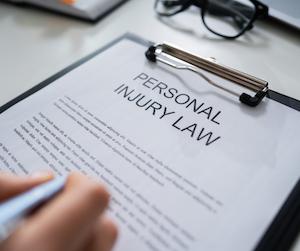Smiles Fool You.
We WIN Legal Fights!

Personal injury claims can arise from a variety of accidents and incidents, ranging from car accidents to slips and falls. When someone sustains injuries due to the negligence or intentional actions of another party, they may be entitled to compensation for their damages.
Personal injury claims typically involve the pursuit of financial compensation to cover medical expenses, lost wages, pain and suffering, and other related damages. In Texas, these claims follow specific laws and procedures that injured individuals must navigate to seek the fair settlement they deserve.
To initiate a personal injury claim, it’s crucial to gather evidence and documentation to support your case. This can include medical records, police reports, witness statements, and any other relevant information that demonstrates the negligence of the at-fault party.
Once you have gathered enough evidence, it is essential to consult with an experienced personal injury attorney. A skilled attorney can help guide you through the legal process and provide valuable advice on how to proceed with your claim. They will advocate for your rights and negotiate with insurance companies or represent you in court if necessary.
One important aspect of personal injury claims is understanding the statute of limitations. In Texas, there is a time limit within which you must file your claim. If you fail to do so within the designated time frame, you may lose your right to seek compensation.
Another critical factor when pursuing a personal injury claim is determining the extent of your damages. An attorney will help assess your medical bills, lost wages, property damage, and any other expenses incurred due to the accident. They will work to maximize your compensation by considering both economic and non-economic damages, such as pain and suffering or emotional distress.
It’s important to note that personal injury claims can be complex, involving negotiations with insurance adjusters and possible litigation. Having a knowledgeable attorney by your side can be the key to achieving a fair settlement or successfully arguing your case in court.
In conclusion, personal injury claims offer an avenue for injured individuals to seek compensation for their losses. By gathering evidence, seeking legal representation, and understanding the legal process, injured victims can pursue the financial compensation they deserve to aid in their recovery and future well-being.
A personal injury claim is a legal action taken by an individual who has suffered harm or injury due to the negligence or wrongdoing of another party. This type of claim seeks to obtain compensation for the physical, emotional, and financial damages caused by the incident.
Personal injury claims can arise from various situations, including car accidents, slips and falls, workplace accidents, medical malpractice, defective products, and more. When pursuing a personal injury claim, the injured party, known as the plaintiff, must establish that the defendant was negligent or at fault for the injuries sustained.
To build a strong personal injury claim, the plaintiff must gather evidence to support their case. This may include medical records, photographs or videos of the accident scene, eyewitness testimonies, expert opinions, and any other relevant documentation. The goal is to demonstrate that the defendant breached their duty of care, which directly caused the plaintiff’s injuries.
Once the evidence has been collected, it is crucial to seek legal representation from a personal injury attorney. An experienced attorney can guide the plaintiff through the legal process, ensuring that their rights are protected and advocating for fair compensation. They will work diligently to negotiate with insurance companies and, if necessary, take the case to court to argue for a favorable outcome.
Personal injury claims typically seek to recover various types of damages. Economic damages cover the actual financial losses incurred by the plaintiff, such as medical expenses, lost wages, property damage, and rehabilitation costs. Non-economic damages, on the other hand, aim to compensate for intangible losses like pain and suffering, emotional distress, loss of enjoyment of life, and disfigurement.
It is important to note that personal injury claims are subject to statutes of limitations, which vary from state to state. In Texas, for example, there is a two-year time limit from the date of the injury to file a claim. Failing to meet this deadline may result in the loss of the right to seek compensation.
In conclusion, a personal injury claim enables individuals who have been injured due to someone else’s negligence to pursue financial compensation for their losses. By collecting evidence, securing legal representation, and understanding the available types of damages, injured individuals can navigate the legal process and strive to obtain the compensation they are entitled to.
If you’ve been injured due to someone else’s negligence, you may be wondering what steps you need to take to prepare your personal injury case. The key to building a strong case is thorough preparation, so here are some important steps you should consider:
By following these steps and working closely with an experienced attorney, you can properly prepare your personal injury case and increase your chances of obtaining the compensation you deserve. Remember, every case is unique, so consult with a legal professional to get personalized advice based on the specific details of your situation.
An experienced personal injury lawyer in Harris County, Galveston County, Fort Bend County, Montgomery County, Brazoria County, Houston, Sugar Land, Missouri City, and Stafford, Texas at Thornton Esquire Law Group, PLLC will take over the case from the very beginning and make sure that you receive fair compensation for your injuries. A personal injury lawyer will help you recover medical expenses, lost wages, pain and suffering, and other losses due to the accident. Contact us today for a free consultation.